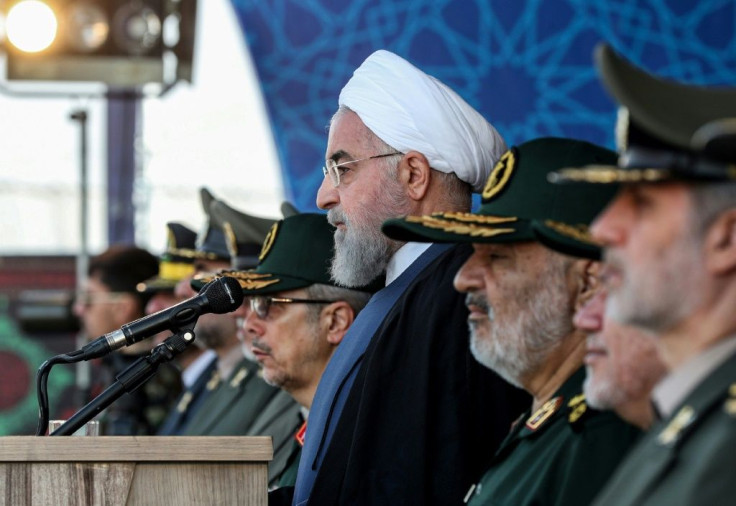Peace Is Possible With Iran And Should Be Considered Quickly

KEY POINTS
- The U.S. and Iran backed militias have traded blows in Iraq
- The U.S. should be allowed to peacefully withdraw troops and personnel
- Iraq and Iran should both elect younger more progressive leaders
- A successful neighbor in the region should provide an example of preserving beliefs and doing business
- Economic aid should be used to develop not as a weapon to punish the population for poor leadership
With the United States and Iran on the brink of war, it is hard to ignore the reasons why it led to this point. The U.S. pulled out of a critical nuclear agreement while Iranian government-backed militias attacked U.S. troops with rockets on eleven different occasions. As a result, the U.S. responded with airstrikes and this spiteful cycle continues.
Can you really blame either side for being ready to come to blows? Iraqi protesters stormed the U.S. Embassy Tuesday morning, causing damage to the facility and prompting personnel to lockdown. In response, the U.S. government has deployed 100 combat-ready Marines to secure the area, and now we wait for the next move.
While leaders of both countries exchange political blows, is there a chance that neither population actually wants a war? The U.S. probably is a welcome presence in the area for many countries, but not all of them. Iran, whom for their own reasons sees the U.S. as some sort of territorial aggressor (that may be true in some cases) but they aren't doing much these days.
ISIS has become virtually incapacitated except for stragglers (both sides admit this), but no changes are made to reflect that
Perhaps the time has come to let Iran and Iraq be to settle the score amongst themselves. The U.S. accomplished its goals and should shed no more blood on the sand. The populace of both countries should rise up and remove their leaders if they are spoiling for a fight so much.
New leaders should be elected from the younger generations on both sides. These leaders should be willing to accept more modern solutions while preserving the rich culture and beauty that each possesses. Perhaps a more prosperous neighbor in the region should step up and teach the future leaders of Iran and Iraq how to lead.
Old traditions on both sides are fundamentally the same. Moh, a 21-year-old working-class guy in Tehran, tells International Business Times that: "He doesn't understand why the mullahs can declare war based on religious context. If we keep fighting everyone, what do we have left?"
That sentiment is echoed in the youth of Iraq. Teach them how to do business with different cultures, to develop a diversified GDP to market to the world. A deal should be struck, allowing Iran to pass through Iraq to engage with Syria and access new trade. Invite them to the world stage as equals, not rivals.
The U.S. and its allies should focus more on helping the populations learn to trade and interact, buy products from all sides, and promote growth, not use economics as a weapon to debilitate the people to the point that they are living on a war footing (which they are.)
Civilized countries don't jump at the chance to kill each other. Religious differences are not a reason to propagate death, lest history is damned to repeat itself. The new attacks are channeling images of 1979 in Iran and 2012 in Benghazi. Those are dangerous precedents to set.
Before the situation spins too far out of control, all sides should sit down and reflect on the implications of their actions and lead. If they can't do that, then they need to step aside and allow someone to step up that can make the tough calls. The U.S. leadership should peacefully remove the troops, Iraq and Iran should enable them to do so with no further loss of life. Peace sells, but who's buying when war is so profitable?
(Benjamin Minick writes on military and defense and is an expert with several years of experience in Middle East policy and military tactics. The opinions expressed are the author's.)
© Copyright IBTimes 2024. All rights reserved.






















